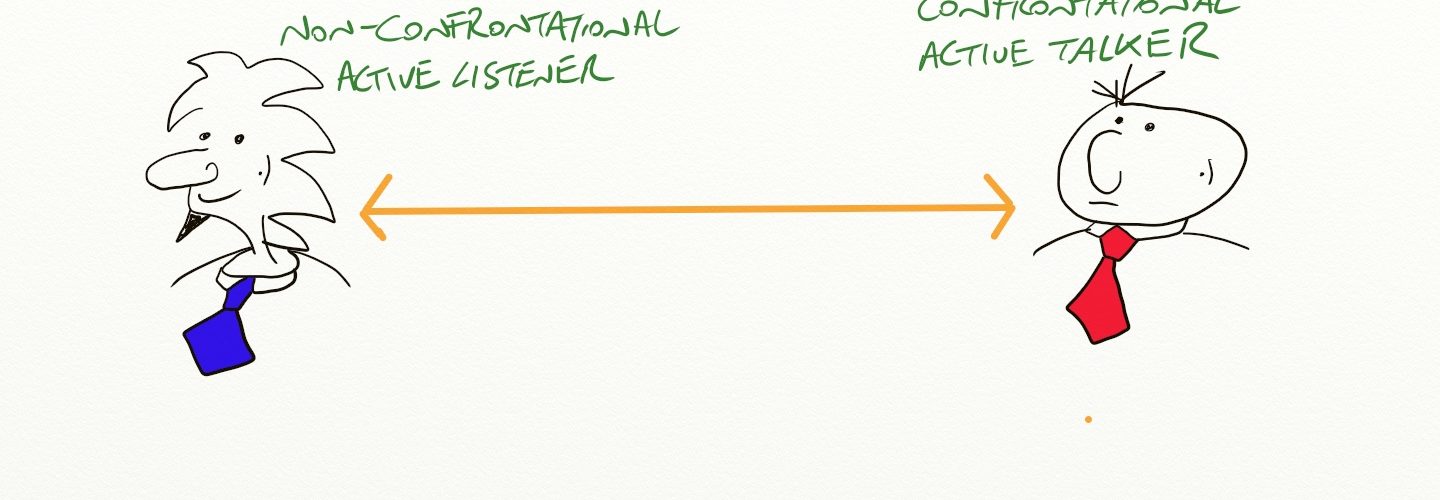What is your Behavioural Style?
Ronan, we have talked before about behavioural style. To be honest, I have struggled to get my head around it and its relevance. Can we discuss it in a little more detail?
Sure, what has prompted your interest?
I have been spending some time with the sales team. I have completed a few field trips, and I have made some observations. Not all about the team. I have some concerns about my behavioural style too.
Ok, let’s start with your concerns first. What precisely do you mean?
As you know, I’m very focused on execution. I like to get things done. And fast. It does work for me most of the time, but I’m beginning to see some cracks in my overall approach.
Cracks?
Yes. I have two team members who don’t share my sense of urgency. But they are excellent at what they do. They somehow connect and build rapport easily with people. They have an indirect style that works. I’m very direct. And that is what concerns me a little. I see their reaction sometimes when I get into my “shoot from the hip” mood.
Their reaction?
Yes, they are taken aback. But, the big issue is that I don’t seem to get through to them. It is funny. I was tempted to say that they don’t get what I’m saying. But I suspect it is more to do with how I communicate. That is what got me thinking about my behavioural style.
I’m delighted to hear you say that as the first step in understanding behavioural style is “know thyself”. In other words, know how you communicate. As an observation, I would say that you are very direct. You like to say it as it is.
Personally, I like that about you. I’m direct too. So in communication terms, we are a good match. However, your two team members are very different. From my work with them, I can see that they are less direct. They are often quite guarded. And non-confrontational.
You are confrontational by nature. But, when I say confrontational, I don’t mean that you are looking for a fight everytime you speak. It is more subtle than that. You like to ask challenging questions. You like to cut through any perceived “fluff” you see or hear. You want to get to the point quickly in conversations.
In short, you and your team are experiencing behavioural conflict.
Oh dear. Ronan, I was taking you seriously up to this point. And then you go and lose it. I mean “experiencing behavioural conflict”?
Ok, so I lose the run of myself occasionally, but the point is that you have very different styles of communicating. And they conflict. It is as if you are on different sides of a bridge and you are not communicating. You both need to meet in the centre and converse in a way that you both understand.
So, if you like to be direct. That is great, but not in all circumstances. And with your team sometimes being direct can be the wrong approach. It may feel to them that you are confrontational. And they are non-confrontational by nature.
And now I am going “so what”?
Ok, let’s imagine you are running an internal sales meeting. What percentage of the conversation do you think you command? If you were a broadcaster what percentage of the time would you be broadcasting versus your team members?
I see. It would definitely be 80%.
Almost, one-directional?
I guess so. But, the rest of the team tend to sit in silence. Pause…
And of course, that is your point. They remain silent. It is their style. And I fill the silence with my voice. I know I definitely do this.
And if you play this scenario out over the course of time?
I dominate the airtime. They become observers.
Precisely. But, I can see from your body language you are a little harsh on yourself. Don’t be. You are not alone. Many of us suffer the same fate. The critical point is that you have recognised it. That is a huge breakthrough. Often we lack the awareness that leads to change. You are in the awareness phase.
Yes, I was beginning to question my style. I want to avoid being directive and move to a more inclusive form of sales leadership.
So, what next?
I am going to take a week or so and get to know myself. I want to take time out after my meetings and assess what I have done well. And most importantly what I have learned. I am also going to try to take more of a back seat in our internal meetings. It will be hard for me to stay quiet. But, I am going to work on this.
That is a good starting point. We can then look at a DiSC behavioural assessment for you. It is a fantastic tool to help you identify your communication style. But, let’s wait until next time, and we can discuss it.
Great, thanks again, Ronan. Talk soon.
If you like this PLEASE SHARE
If you would like to learn more about how you can generate More Profitable Sales. More Sustainably. In Less Time. Call Ronan On +353 86 7732201
Or email me coachronan@insthinktive.com
Download our FREE Sales Resources Here.



